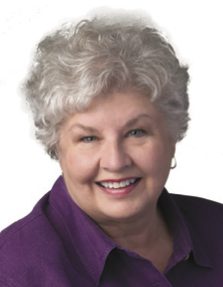
23 May 2014 Another summer in the South
by Vivian Lawson Hogue
It is with much ease that we look to the summers of our formative years and the carefree activities that we focused on at the time. Our youthful senses were sharp, and we made use of all of them.
In the small Conway population of the 1950s and 60s, school was dismissed in May for the summer, and we had until Sept. 1 to kill time. One way was to play organized baseball at the field on the old fairgrounds site.
The sometime blending of teen boys of different races, religions and social standing in order to have a full team was practical and done with success. Neighborhood games were held in vacant lots. With no adult supervision needed, decisions were argued, settled and the game continued regardless of temporary fuming tempers.
Our gardens demanded intensive care as we had no watering equipment or systems, and the continual drought years were irrigated mostly with sweat. We had one outdoor water faucet, and to use it my dad first had to displace my Manx cat who liked to lie under the drip.
We did not fight crows, possums, raccoons or other garden pests because our town was still surrounded by fields and woods where they could exist unbothered.
We sometimes made outings to the ferry at Toad Suck, a site burdened with a name that more likely referred to the river’s pattern of water movement rather than a stereotypical reference to the local denizens. We drove the car up on the ferry and enjoyed a cooling breeze as we “sailed” to the west side and back.
During my first eight years I found comfort in the coolness of thick clover in our yard before it was mowed. During the day, I could lie back and be eye-to-eye with blossom-hopping honeybees.
At night, I knew the man in the moon was entirely too far to ever reach, but I enjoyed the sleepy smile on his face. He kept watch over our town in its nights of darkness before city lights invaded it.
Those living in the rural areas enjoyed even quieter living with the exception of farm machines and lowing cattle. City or country, we survived our open-windowed summers by sitting on shady porches using funeral home fans to cool our faces and sprinkling water on sheets at bedtime.
My friend, Carolyn, recalls swimming at Kuykendall’s pool, attending church camps and vacation Bible school and at age 16 working in downtown stores.
Another friend, Judy, came to Conway from Pennsylvania in 1959. Her eastern summers sounded much like ours. “Wild blackberry bushes were prolific where I lived, and the berries were large and delicious,” she said. “Mother made a pail from an empty Crisco can, and my brother and I wore long-sleeved shirts and long pants to go blackberry picking. Then Mother would can them.” I asked her about how they dealt with chiggers, and she replied, “Oh, no! No such ‘animal’ in PA! I had never heard of them before coming here.” And here I was thinking blackberry picking couldn’t happen without chiggers!
We seem to measure our early lives by our summers, then finally discover that they mellow out with the increasing responsibilities of maturity. We still anticipate them, but they are never again as spirited as when school was out and bare feet were in.
A native of Conway, Vivian Lawson Hogue graduated from the University of Central Arkansas with a degree in art education. A retired teacher, she worked in the Conway School District for 23 years. She is editor of the Faulkner County Historical Society’s semi-annual publication, “Faulkner Facts and Fiddlings.” She can be reached at [email protected].











